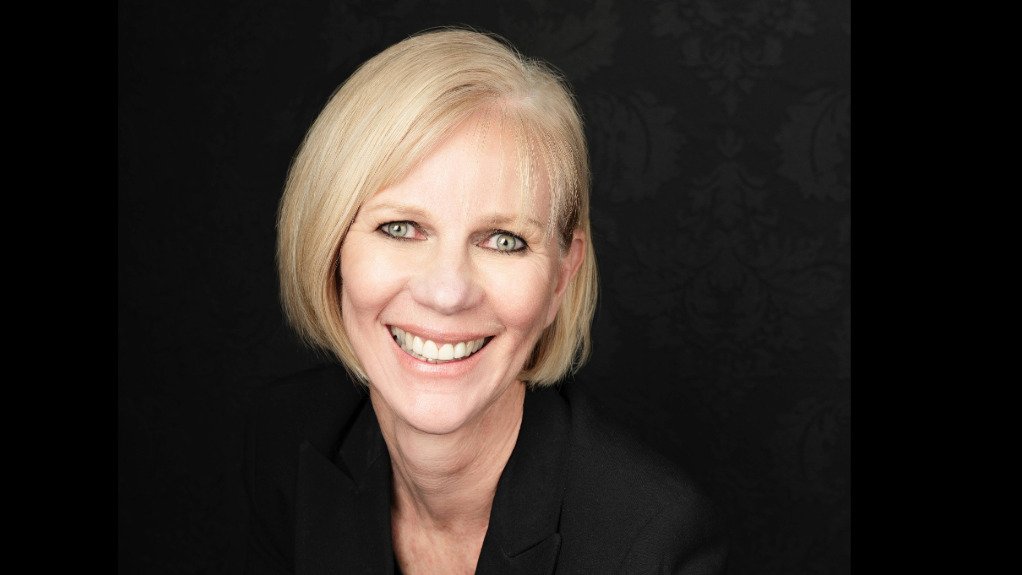Association launches Sustainability Disclosure Guide for South African Reits



SA REIT CEO Joanne Solomon
Nedbank CIB property finance managing executive Gary Garrett
The South African Real Estate Investment Trust Association (SA REIT) has, in partnership with Nedbank Corporate and Investment Banking (CIB), launched the SA REIT Sustainability Disclosure Guide, aimed at establishing sustainability standards and best practice benchmarks for the real estate sector in South Africa.
In a November 7 media release, SA REIT describes the guide as a “valuable resource” for the association’s members, as well as for property organisations starting their sustainability reporting.
It notes that the guide provides key information to improve their reports and outlines a framework of recommendations for sustainability and climate-related disclosures, aligning with international standards in the South African property sector and the global sustainability landscape.
“As industry partners, we are proud to launch the inaugural SA REIT Sustainability Disclosure Guide, marking a significant advancement in fostering a unified approach to sustainability within the South African real estate sector.
“The property sector plays a crucial role in tackling environmental, social and governance (ESG) challenges. Our goal is to guide the industry toward a future where sustainable practices are seamlessly integrated into business strategies, enhancing both resilience and value,” says SA REIT CEO Joanne Solomon.
Sustainability has become a key priority for businesses, with capital markets increasingly evaluating performance based on ESG metrics in their investment decisions.
This trend is supported by compelling evidence linking strong ESG performance to an organisation’s ability to secure long-term competitive and financial advantages.
Further, sustainability reporting offers investors valuable insights into a company’s long-term viability, risk management, and growth potential. SA REIT says this transparency empowers investors to make informed decisions that align with their values and financial goals.
The guide thus aims to enhance the reliability, consistency, and comparability of ESG data among South African real estate investment trusts (Reits), promoting objectivity, facilitating analysis, improving valuations, supporting benchmarking, and encouraging cross-organisational comparisons, says Solomon.
“As a purpose-led organisation, we aspire to be a key participant in promoting a more sustainable future for the real estate sector. We are intentional about sustainability and about contributing positively to the communities in which we operate,” adds Nedbank CIB property finance managing executive Gary Garrett.
The SA REIT Sustainability Disclosure Guide highlights the significance of accurate and reliable ESG reporting, aligning with global best practices and standards, including the Global Reporting Initiative, the Sustainability Accounting Standards Board and the Task Force on Climate-related Financial Disclosures.
Garrett says the practices outlined in the guide foster transparency, enhance stakeholder trust and promote sustainable growth in the property market.
Solomon adds that the guide aligns with the voluntary JSE Sustainability and Climate Change Disclosure Guidance of 2022 and global best practices, specifically for the South African property sector. It is recommended that this guide be used alongside the JSE guidance which serves as its foundation.
The SA REIT posits that many recommendations in these frameworks are not industry-specific and often overlook the unique challenges faced by property owners in South Africa.
For example, an international decarbonisation disclosure framework may not account for local municipality restrictions on electricity wheeling or the lengthy process of obtaining water-use licences.
“This guide will assist issuers and investors in the South African property sector by standardising key sustainability concepts and their reporting. While it serves as a valuable voluntary tool, its application is not mandatory,” Solomon says.
Article Enquiry
Email Article
Save Article
Feedback
To advertise email advertising@creamermedia.co.za or click here
Announcements
What's On
Subscribe to improve your user experience...
Option 1 (equivalent of R125 a month):
Receive a weekly copy of Creamer Media's Engineering News & Mining Weekly magazine
(print copy for those in South Africa and e-magazine for those outside of South Africa)
Receive daily email newsletters
Access to full search results
Access archive of magazine back copies
Access to Projects in Progress
Access to ONE Research Report of your choice in PDF format
Option 2 (equivalent of R375 a month):
All benefits from Option 1
PLUS
Access to Creamer Media's Research Channel Africa for ALL Research Reports, in PDF format, on various industrial and mining sectors
including Electricity; Water; Energy Transition; Hydrogen; Roads, Rail and Ports; Coal; Gold; Platinum; Battery Metals; etc.
Already a subscriber?
Forgotten your password?
Receive weekly copy of Creamer Media's Engineering News & Mining Weekly magazine (print copy for those in South Africa and e-magazine for those outside of South Africa)
➕
Recieve daily email newsletters
➕
Access to full search results
➕
Access archive of magazine back copies
➕
Access to Projects in Progress
➕
Access to ONE Research Report of your choice in PDF format
RESEARCH CHANNEL AFRICA
R4500 (equivalent of R375 a month)
SUBSCRIBEAll benefits from Option 1
➕
Access to Creamer Media's Research Channel Africa for ALL Research Reports on various industrial and mining sectors, in PDF format, including on:
Electricity
➕
Water
➕
Energy Transition
➕
Hydrogen
➕
Roads, Rail and Ports
➕
Coal
➕
Gold
➕
Platinum
➕
Battery Metals
➕
etc.
Receive all benefits from Option 1 or Option 2 delivered to numerous people at your company
➕
Multiple User names and Passwords for simultaneous log-ins
➕
Intranet integration access to all in your organisation



















